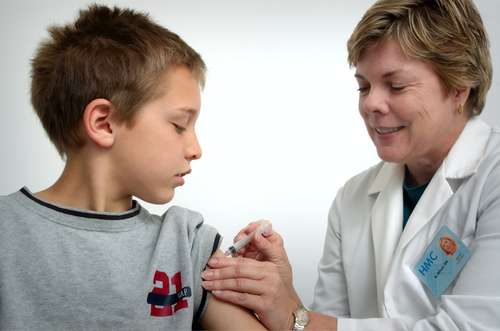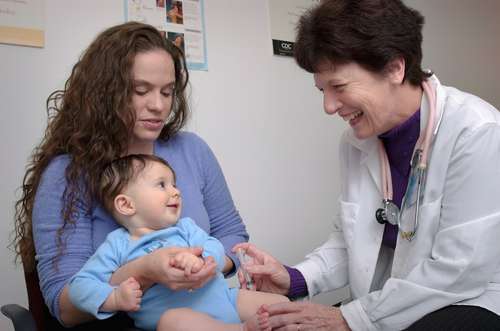Exploring the importance of an HIV vaccine often feels like a journey through uncharted territory, where hope meets hard science. Even as we navigate everyday challenges, the need for a breakthrough in HIV prevention continues to grow. We have made strides in HIV treatment, yet the virus still casts a long shadow over millions of lives. For many, the promise of a vaccine represents a turning point—a future where HIV transmission is not a looming threat but a controllable concern.
Living in the US today means being connected to advances in healthcare while also confronting challenges like cost and accessibility. HIV research has shown us that while medications are available, consistent adherence remains a daily battle for many. So, why is it that an HIV vaccine is so important? It boils down to the promise of a simplified, more effective approach to managing the virus, which could drastically reduce our overall dependency on continuous treatment.
The Need for an HIV Vaccine
The journey of fighting HIV has witnessed many hurdles. Modern antiretroviral therapies have improved life expectancy, but their high cost, side effects, and accessibility issues still hinder global progress. A robust HIV vaccine has the potential to serve as a game changer in this battle.
Imagine a scenario where instead of daily pills and the uncertainties of long-term medication, a single vaccine could prime the body’s immune response against HIV. It’s like switching from a worn-out manual car to an automatic that does much of the heavy lifting on its own. This vaccine could not only simplify treatment protocols but also ease the burden on healthcare systems worldwide.
For many who have witnessed the impact of HIV firsthand, this isn’t just about curing a disease; it’s about restoring hope to millions. The importance of an HIV vaccine lies in its ability to reduce the rate of HIV transmission and ultimately halt the epidemic’s spread. This benefit extends to public health at large, as fewer new infections would mean less strain on medical resources and a more robust community health landscape.
Scientific Breakthroughs and Vaccine Development
Research in vaccine development has been an uphill battle, yet every step taken offers hope. The journey of creating an effective HIV vaccine involves navigating a maze of scientific challenges, where each breakthrough sparks optimism. With tools like advanced genetic sequencing and our ever-improving understanding of immune response, every day brings us closer to that life-changing vaccine.
Several research teams are making significant progress toward vaccine innovation. Cutting-edge studies around the globe are exploring how to stimulate the layered defenses of the immune system. The goal is to train the body to fend off HIV even before it takes hold, much like a well-organized security system that pre-empts potential intruders.
At the heart of vaccine development is the quest for understanding the complexities of HIV itself—a virus that mutates rapidly and outsmarts conventional treatments. Each trial and study pushes the boundaries of HIV research, infusing public health dialogues with new insights on AIDS prevention and vaccine benefits. While obstacles remain, the persistent efforts of scientists and researchers underpin the potential for a future where HIV transmission is dramatically reduced.
Overcoming Challenges in HIV Prevention
Tackling HIV prevention is like running a marathon with hurdles that keep resetting themselves. With existing medications, adherence is often a challenge—not only because of their side effects but also due to the expensive nature of lifelong treatments. A vaccine could be the ultimate leveler, eliminating the heavy reliance on daily or regular medication.
The reality is that many individuals face barriers in accessing consistent HIV treatment, whether due to financial constraints or inadequate healthcare infrastructure. A vaccine designed to prevent HIV would empower communities by offering a more straightforward, effective solution that sidesteps many of these challenges.
In discussions about public health, one point always comes up: prevention is better than cure. An HIV vaccine can reduce the number of new infections, alleviate the long-term burden on healthcare systems, and provide a boost to global health initiatives. The continuous search for a vaccine is driven by the need to address gaps in current treatment methods and ensure that vulnerable populations receive effective protection against infectious diseases.
Global Health Implications
The broader impacts of an HIV vaccine are nothing short of revolutionary. In the realm of global health, an effective HIV vaccine would serve as a cornerstone in the fight against infectious diseases beyond just HIV. It would symbolize innovation and the successful convergence of international research efforts and public health policy.
Think about the ripple effects: a decrease in HIV transmission rates would transform landscapes of public health, particularly in regions heavily stricken by the epidemic. This vaccine could stand as a beacon of hope, reshaping strategies for not only AIDS prevention but also the broader management of chronic diseases after a single immunization run.
While we continue to work on and debate the best approaches to this public health puzzle, it's crucial to remember that every step forward in vaccine research adds to our collective knowledge and fortifies our arsenal against infectious diseases. It’s an investment in our future health, and the promise of an HIV vaccine is an evolving story of resilience and innovation.
The Road Ahead
Looking forward, the need for continuous research in HIV vaccine development has never been more apparent. Researchers around the globe remain committed to surmounting the existing barriers, and each small victory is a crucial step toward broader AIDS prevention efforts. The path is often long and winding, but the destination—a world with fewer HIV transmissions—makes every challenge worth overcoming.
We are all part of a global community striving for better healthcare outcomes. The personal stories and public health cases alike remind us that innovations in medical research can change lives. The challenges we face are powerful motivators for the continued exploration of vaccine options that reduce HIV transmission rates and enhance the overall healthcare impact of HIV research.
The transformative potential of an HIV vaccine extends far beyond clinical trials—it promises to reshape how we perceive and manage HIV on a global scale. It's a story of hope, perseverance, and the unwavering commitment of the scientific community to improve the lives of millions. Every breakthrough, no matter how small, propels us closer to achieving significant gains in HIV prevention.
In the end, the call for an HIV vaccine is not just about combating a virus; it's a call to action for enhanced global solidarity in public health, clinical research, and compassionate care. As we continue this journey, the lessons learned and the resilience shown by countless individuals serve as the ultimate reminder: our collective effort is essential in turning the tide against the HIV epidemic.




